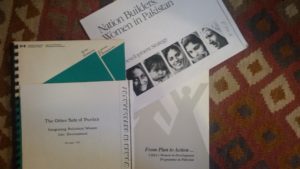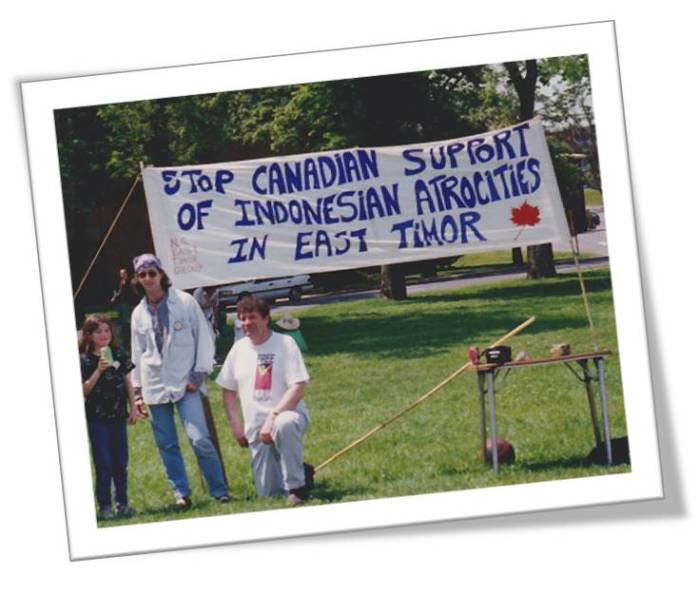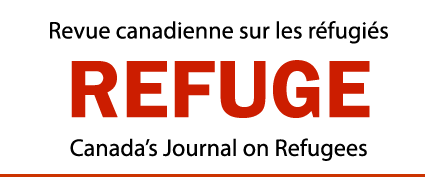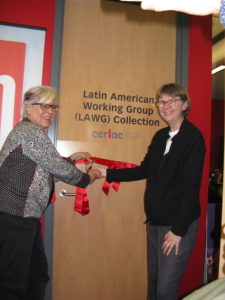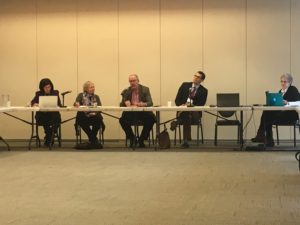The fifth newsletter of the CNHH was sent out this morning. For any who missed it, the full text can be read below. Continue reading
Page 16 of 23
Deadline: June 30, 2017.
Printer Friendly Call for Photographs.
Photographers and aid agencies each frame photographs according to their own politics, experiences and goals. These, in turn, shape spectators’ interpretations of people’s lived realities around the globe, and contribute to formulating responses to humanitarian issues. How have photographers and agencies represented refugees? How have refugees been pictured? In what way does the photographic version change when it has been published?
See how “Refugees on the road between Gisenyi and Ruhengeri,” a photograph of a Rwandan child made by Canadian photographer Roger LeMoyne’s in 1996 for the CIDA International Development Photo Library and published in 2000, can help answer these questions.
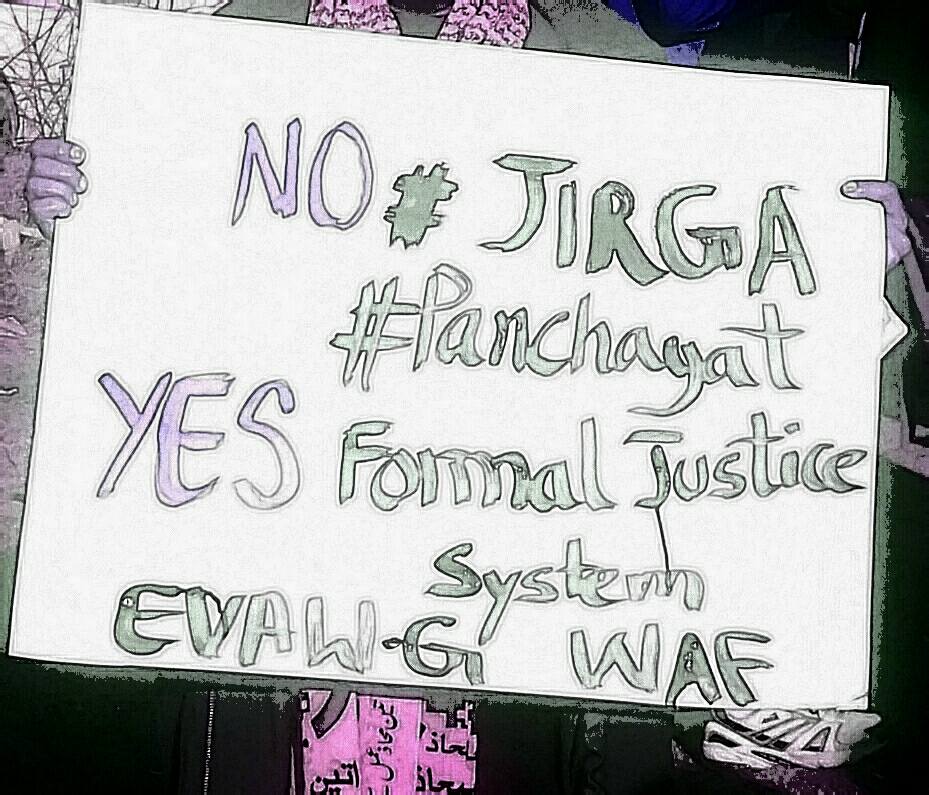
Canada’s Legacy of Gender Equality Support in Pakistan: Malala’s Speech in Parliament, A Symbolic Reminder
by Rhonda Gossen
“Women and girls will be at the heart of the Government’s development policy”, Canada’s Minister for International Development, April 12, 2017
Malala’s moving speech in Canada’s Parliament last month on the right to education for girls is a poignant reminder of the ongoing struggle for gender equality in the country of her birth, Pakistan. It is also a symbolic reminder of Canada’s history of support for women’s rights in Pakistan built over more than three decades. Canada’s legacy as a global leader championing gender equality actually began in Pakistan in the mid 1980s. Looking back at that legacy, it is hard not to view it against the rise of violent Islamic extremism that developed inside Pakistan over the same period. These two opposing forces- those working for women’s rights and those working to restrict them, have both consistently gained strength since. Decades later, one can trace the path from the Pakistan women’s movement in its struggle against the Islamic laws affecting women’s rights in the 1980s, to Malala today as a symbol for human rights and peace.
By Tyler Owens* and Dominique Marshall
The postcards and personal photographs from Dr. Keith Spicer’s 1960 trip through Europe, Africa, and Asia, were produced during the research he conducted on the trip for a doctoral thesis, better known today as A Samaritan State? External aid in Canada’s foreign policy (1966). On the same occasion, he laid the foundations for Canadian Overseas Volunteers, which would become Canadian University Students Overseas (CUSO). These two maps tell the story of this trip, in his own words. Click the arrows below to take this voyage with him.
* Tyler Owens, research assistant for the CNHH paid by I-CUREUS project put together these ESRI Story Map presentations as part of the preparations for A ‘Samaritan State’ Revisited Conference in December 2016 . We thank the MacOdrum Library Map specialist Rebecca Bartlett for ther technical advice.

Sharing Perspectives on Climate Migration: From Narratives, to Language, to Conceptualization
by Jay Ramasubramanyam
“Rains have become so fickle, the days measurably hotter, the droughts more frequent and more fierce, making it impossible to grow enough food on their land” read an article in the New York Times that appeared in late February which elucidated the grounds for mass-migratory patterns across Sub-Saharan Africa (Heat, Hunger and War Force Africans Onto a ‘Road on Fire’). In light of such patterns increasing more than ever in the global south, the role of Carleton University’s Climate Commons, a working group that brings together faculty members and undergraduate and graduate students to discuss climate change issues, becomes all the more prominent within the context of such narratives. An evening of discussion and dialogue on climate change migration on the 1st of March brought together professors, a slam poet and a graduate student to discuss ‘climate refugees’.
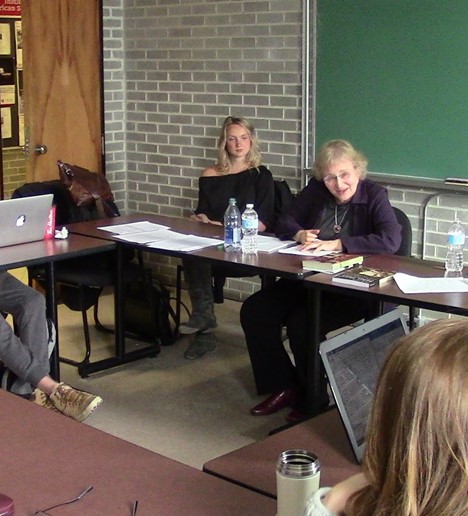
Dr. Catherine LeGrand, second from left, speaking on “Canadian Church Groups in Latin America and Civil Society Organizations” during the workshop, “Canada’s Past and Future in the Americas,” 27-28 March 2017. Photo by Julia Van Drie.
On 28 March 2017, McGill University’s historian of Latin America, Dr. Catherine LeGrand, met with students and faculty of Carleton University to discuss Catholic Missions, Liberation Theology, and Humanitarianism in participation with the Canadian Network on Humanitarian History. The audio of this workshop may be found here. Details of this event can be found on the CNHH website.
by David Webster
When does the humanitarian impulse to provide aid and relief contribute to activism to promote human rights? When does it prompt avoidance of activism in favour of quietly enduring access to places and people in need?
This is one of the questions I am trying to answer in current research on relations between Canada and East Timor. Under Indonesian military occupation from 1975 to 1999, Canadian aid agencies tended to shy away from criticizing Indonesian actions in order to make sure they could deliver aid supplies. Humanitarian impulses dictated a quiet stance on human rights from a range of Canadian NGOs. But there was an early exception, in the work of Oxfam Canada.
The current issue of Refuge: Canada’s Journal on Refugees has now been published. This special issue on Power and Influence in the Global Refugee Regime is one of the results of the workshop hosted at Carleton University in September 2015 with the generous support of Migration and Diaspora Studies. It is an OpenAccess journal, so you can access and share the special issue through the journal’s Table of Contents or through the provided link.
by Julie Van Drie
Reflections on the Conference, “A Samaritan State Revisited: Historical Perspectives on Canadian Foreign Aid, 1950-2016.”
On December 12th and 13th 2016, the colloquium, A Samaritan State Revisited: Historical Perspectives on Canadian Foreign Aid, 1950-2016 was held at the Lester B. Pearson Building, the main office of Global Affairs Canada, in Ottawa, ON. The conference involved an array of academics and professionals on the history of Canada’s foreign aid policies since 1950, on the 50th anniversary of the publication of Dr. Keith Spicer’s A Samaritan State?[1] The conference featured 17 speakers, all of whom gave a presentation on a specific aspect of Canada’s humanitarian aid policy. With approximately 150 attendees, undergraduate and graduate students, research assistants, professors, academics, bureaucrats, ambassadors, and other distinguished guests gathered together in the impressive Robertson Room at Global Affairs Canada to engage with this important field of study, and explore questions about Canada’s past role in foreign aid and development.
On Thursday February 16, CNHH member John Foster was at York for the launch of the LAWG collection. He wrote: “The event was quite wonderful. I attach the ribbon cutting moment, with Prof. Liisa North of York and Caese Levo, former LAWG librarian, both of whom have been instrumental in organizing the collection. We are so lucky that CERLAC negotiated space and is hosting.”
John presented the archives at Carleton University today at the Workshop on Canada’s Past and Future in the Americas in the session on “Historical Perspectives on Canada’s Relations with Latin America”, in a paper entitled” “Life Beyond Death: The Story of the Latin American Working Group (LAWG)”
Here is the official announcement of the archives opening:
Latin American Working Group (LAWG) library opens at CERLAC’s Resource Centre
Latin American Working Group (LAWG) library opens at CERLAC’s Resource Centre:
We are pleased to announce the opening of the LAWG (Latin American Working Group) Library, part of CERLAC’s Resource Centre, thanks to the efforts of Liisa North and Caese Levo. As Liisa explains, LAWG “played a leading role in sustaining Canadian solidarity with human rights and women’s organizations, peasant and worker unions, ecumenical groups, refugee agencies, and others in the southern hemisphere during some of its darkest hours of war, military dictatorship, and US intervention, as well as the bright moments of popular and revolutionary breakthroughs.”
The LAWG library is a unique collection of ephemeral publications, pamphlets, posters, letters to the public, reports, and other publications dating from 1965 to 1990. It consists of thousands of documents organized and labeled in 120 “banker’s boxes.” The collection is particularly strong on (from north to south) the Dominican Republic, Grenada, Guatemala, El Salvador, Nicaragua, Brazil, Argentina, and Chile. Simon Granovsky-Larsen, Assistant Professor of Politics and International Studies at the University of Regina, who examined the Guatemala collection, found that it contained “rare and important material on the relatively obscure Guatemalan organization that I happen to be interested in” and that the collection as a whole “would attract visiting researchers from across Canada and beyond, as well as graduate students from a number of disciplines” if it were publicized more.
More information on the LAWG Library, as well as other collections at the CERLAC Resource Centre is available on our website (under “Resources”). The collection can be consulted by contacting CERLAC Coordinator Camila Bonifaz (bonifaz@yorku.ca).
To read John’s blog on the recognition of the LAWG by the Chilean government in the fall of 2016, click HERE.


